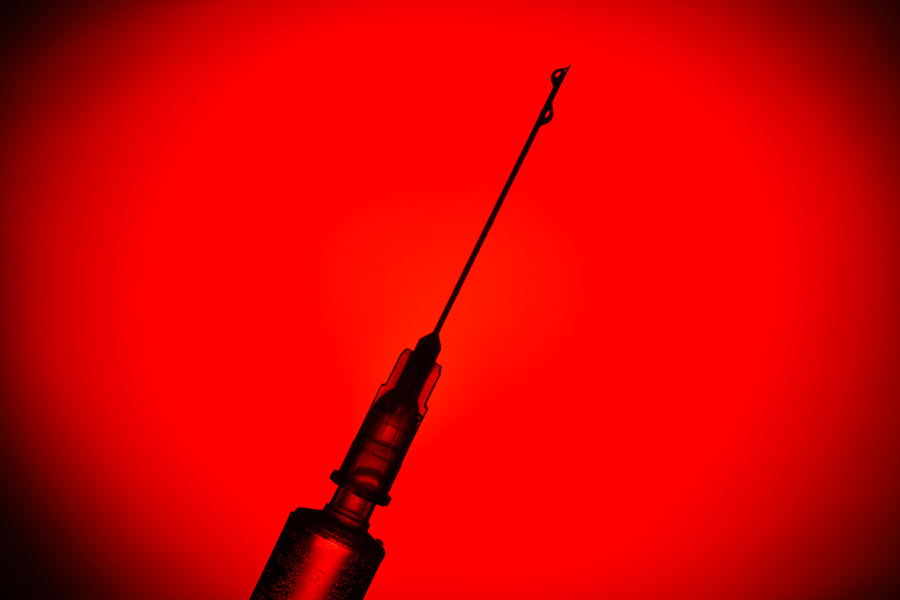The Trump administration has dealt a sharp blow to work on HIV vaccines, terminating a $258 million program whose work was instrumental to the search for a vaccine.
Officials from the HIV division of the National Institutes of Health delivered the news Friday to the program’s two leaders, at Duke University and the Scripps Research Institute.
Both teams were collaborating with numerous other research partners. The work was broadly applicable to a wide range of treatments for other illnesses, from COVID-19 drugs to snake antivenom and therapies for autoimmune diseases.
“The consortia for HIV/AIDS vaccine development and immunology was reviewed by NIH leadership, which does not support it moving forward,” said a senior official at the agency who was not authorized to speak on the matter and asked not to be identified.
“NIH expects to be shifting its focus toward using currently available approaches to eliminate HIV/AIDS,” the official said.
The program’s elimination is the latest in a series of cuts to HIV-related initiatives, and to prevention of the disease in particular. Separately, the NIH also paused funding for a clinical trial of an HIV vaccine made by Moderna.
“I find it very disappointing that, at this critical juncture, the funding for highly successful HIV vaccine research programs should be pulled,” said Dennis Burton, an immunologist who led the program at Scripps.
The cuts will derail hard-won progress against HIV over the past few decades, public health experts said. This past week, the administration also withheld funds that were due to states and territories for HIV-prevention work. In Texas, the State Department of Health Services asked grantees to pause all activities “until further notice.” In Mecklenberg County in North Carolina, the health department has already had to lay off 10 staffers. Already, many African countries have reported serious disruptions in their efforts to curb the epidemic.
“It’s just inconceivable how shortsighted this is,” said Mitchell Warren, executive director of the HIV prevention organization AVAC.
The number of new HIV infections had been declining steadily since 2010. Still, in 2023, the World Health Organization reported 1.3 million new cases, including about 120,000 children.
“The HIV pandemic will never be ended without a vaccine, so killing research on one will end up killing people,” said John Moore, an HIV researcher at Weill Cornell Medical in New York.
“The NIH’s multiyear investment in advanced vaccine technologies shouldn’t be abandoned on a whim like this,” he said.
In his first term, President Donald Trump embraced initiatives to end the HIV epidemic in the United States. But his second administration has slashed federal support of such efforts. The NIH terminated several grants related to PrEP, the regimen of preventive drugs that are highly effective in thwarting HIV infection.
The Trump administration also shut down the HIV prevention division of the Centers for Disease Control and Prevention, which provided funds to states and territories for HIV prevention and for detecting and responding to HIV outbreaks. Officials at the health department have said some of the work will be shifted to the yet-to-be-formed federal Administration for a Healthy America, but no details have been provided.
The Department of Health and Human Services, which oversees the CDC, NIH and other federal health agencies, did not immediately respond to a request for comment.
In January, the Trump administration halted disbursement of funds from the President’s Emergency Plan for AIDS Relief, known as Pepfar, a $7.5 billion program that supplied most of the treatment for HIV in Africa and developing countries worldwide.
The State Department later issued waivers to allow treatments to resume but did not restore funding for HIV prevention.
Trial after trial has failed to produce an HIV vaccine, leading some experts to question whether it is possible to design a traditional vaccine at all against the wily virus. The Scripps and Duke teams had taken a different tack, studying the body’s immune response to the virus.
With funding from seven-year awards made in 2019, they focused on so-called broadly neutralizing antibodies, which have been shown in animal studies to provide long-lasting protection against exposure to multiple HIV strains.
The clinical trials based on their work may continue, as long as NIH funding for the HIV Vaccine Trial Network is maintained.
But ending the research programs now means that in a few years, there will be no new candidates in trials, Warren said.
“Almost everything in the field is hinged on work that those two programs are doing,” he said. “The pipeline just got clogged.”
The New York Times News Service











